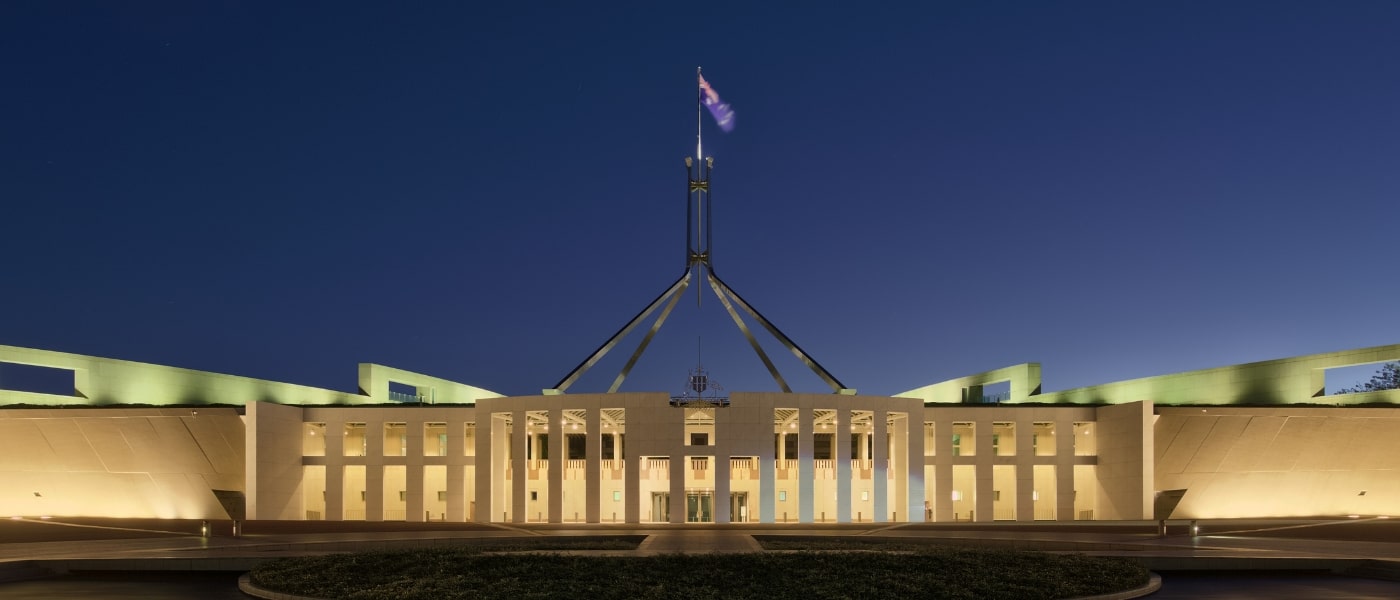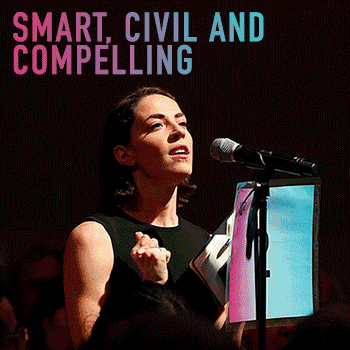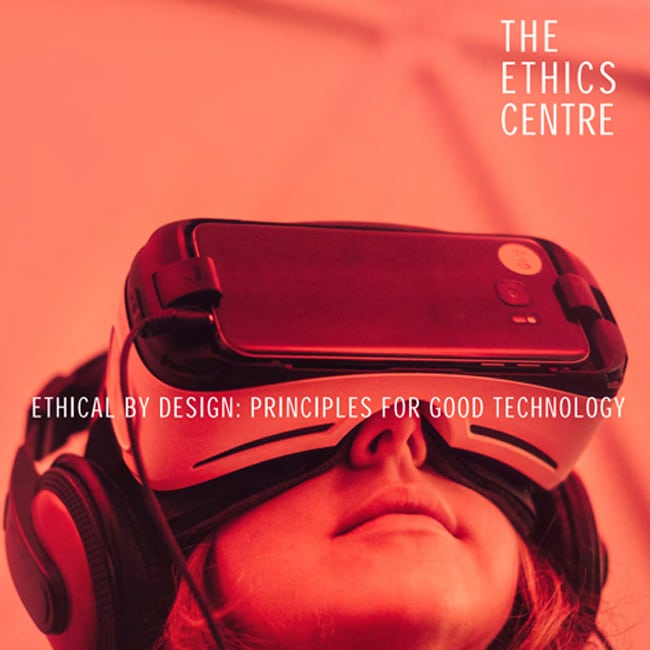The dark side of the Australian workplace

The dark side of the Australian workplace
Opinion + AnalysisBusiness + Leadership
BY The Ethics Centre 5 JUN 2019
The founder of a law firm recently explained long working days under high pressure at his firm, saying: “People come here with the knowledge and expectation that they’re going to have to work hard”.
He could have been speaking for any number of employers in high-stress industries.
As young graduates leave university to work in top-tier law firms, in hospitals, merchant banks and professional services, they are already well acquainted with hard work and competition. They have strived to become the best and brightest through many years of education, often polishing their resumes with extra-curricular achievements in sport, music and volunteer work – all the while supporting themselves with part-time jobs.
These young people know what it is like to “burn the candle at both ends”, to run themselves ragged getting ahead of the competition so they can get one of the prized entry-level jobs that may lead to continued success.
They expect to be worked hard. They probably don’t expect to be worked to death.
Two leading law firms have recently been investigated over complaints about “extreme working conditions”, where one solicitor warned that it had reached a “point someone will die or have some other physical or mental health episode’’.
An unprecedented move by WorkSafe
In one well-publicised example, WorkSafe Victoria had launched an investigation into King & Wood Mallesons in Melbourne after a similar complaint regarding overwork and exhaustion, particularly during the Banking and Finance Royal Commission.
King & Wood Mallesons chief executive partner, Berkeley Cox, says the legal industry is paying much closer attention to the issue of work stress.
“We have learnt so much over the past year and recognise that there is a lot more that law firms can and should be doing to improve the everyday work experience for individuals and the systematic issues at an organisational and industry-wide level,” he says.
“While we have much more to do on our journey, we want our workplace to be one where every individual has the opportunity to flourish.”
WorkSafe’s action is regarded as unprecedented in the legal industry and some pundits have nominated it as a “death knell” for the concept of the “billable hour” – whereby firms charge clients for each hour their lawyers work.
The billable hours system means that workers are incentivised to work longer, rather than smarter.
Certainly, the statistics around mental health in the legal profession are alarming.
Around 50 per cent of law students, 33 per cent of solicitors and 20 per cent of barristers report they have experienced depression. Further, 11 per cent of lawyers contemplate suicide each month, according to research published on the website of legal mental health charity, Minds Count (formerly the Tristan Jepson Memorial Foundation).
A punishing rite of passage
Investigating the causes of this crisis and exploring possible solutions usually leads back to an industry culture of being always-available to clients, unreasonable demands for fast turnarounds and the “billable hour”. There is also a long-held belief in the professions that young people will work punishing hours as a “rite of passage” that will pay off in the long run.
In the legal industry, Royal Commissions tend to amp up the pressure, with work going on in 24-hour cycles in 15-hour shifts, seven days per week, in an environment that is intolerant of mistakes or human frailties.
As it is, lawyers work longer overtime than professionals in any other field in Australia, according to a position paper by The Legal Forecast, a not-for-profit group that provides support for students and early-career lawyers.
Under discussion at a recent event, hosted by The Legal Forecast, was the exacting timetabling of the Hayne Royal Commission and the impact it had on lawyers, particularly junior staff.
DLA Piper Australia co-managing partner and Minds Count board member, Melinda Upton, asked: “Was it worth the sacrifice when you look at statistics on people committing suicide and entering depression? Did it have to be done that quickly?”.
This point was picked up by Scarlet Reid, a partner at McCullough Robertson Lawyers, who said she worked on the Hayne Royal Commission and is now working on this year’s Aged Care Royal Commission.
Reid said the Aged Care commission was proceeding at a “much slower pace” and questioned whether the banking Royal Commission really had to be completed in one year.
“Politics drives that as well,” she said. “We could slow down.”
She said many of the organisations involved in giving evidence to the Aged Care Royal Commission were not-for-profits that did not have the funds to pay for large legal teams – a factor that puts a brake on the pace.
Need to slow down
Partner at legal recruitment firm ECP Legal, Justin Whealing, said a senior banking corporate counsel told him he wished the law firms and their clients had teamed up to ask the commissioner for more time.
“I think the legal profession could do that better, in terms of presenting a united front to speak in one voice about how meaningful changes can be made for the betterment of the profession. Clients would get better advice as well and it would be more sustainable for the people in it,” Whealing said. He also advocated having an industry-wide standard, setting out conditions such as maximum work hours and mandatory breaks and using targets.
Reid acknowledged the bind that law firms find themselves in: “It’s very difficult when you’ve got clients needing to meet deadlines, getting into witness boxes. And, you know, it’s a balance”.
Some firms are using contract lawyers to help manage workload over peak times, says the head of Innovation and Project Delivery at Pinsent Masons, Alison Laird. Even without being involved in a Royal Commission, there are huge deadlines that must be met. “So we ramp up the team, and then we ramp them down again,” she says.
Getting rid of ‘billable hours’
Laird said things will not improve until law firms change the way they remunerate their people and get rid of the “billable hour” system, which drives lawyers to bill a certain number of hours per year to the detriment of their mental wellbeing. “It is the one thing that impacts innovation more than anything else,” she says.
At least one top tier firm, Corrs Chambers Westgarth, is dumping the billable hour concept (while adding an extra week of annual leave) and replacing them with annual billing targets, which allow for peaks and troughs of client-billed activity.
However, Melinda Upton warned that replacing the billable hours system cannot happen without the support of clients, who are likely to push back on any change. Member of The Legal Forecast NSW, Edwin Montoya Zorrilla, supports a move away from billable hours and offers more remedies: the automation of various legal tasks and integrating long-term thinking into practice management and recruitment.
“This discussion also includes more specific strategies such as optimising systems of delegation and work sharing, better communication with clients, and using technology-assisted project management tools,” he writes in an article for Westlaw.
“Yet, none of these strategies, however innovative, take effect overnight, and there remains a tendency to return to traditional means of meeting the bottom line.”
Encourage safe work
Upton said it is a responsibility of law firm partners and management to educate the partners about staff wellbeing and “to call it out when they don’t come to the table on it”.
They can also highlight examples where enforcing or encouraging safe work practices has worked well.
“Usually it means your attrition rates have improved, you’ve got a much happier team, you’ve got succession and talent mapping and progression going on, you get good client feedback. And clients really don’t care where you work.”
Reid says working shorter hours may mean that law partners have to accept they will make less money.
When partners discuss remuneration structures at a firm-wide level, they need to be talking about encouraging the sharing of work between teams, the use of contract lawyers and other ways to create a sustainable work environment.
“There is an element of almost a corporate greed associated with the driving of long hours … unless you’re going to change the remuneration structure, then it’s going to be hard to drive behaviour,” she says.
This article was originally written for The Ethics Alliance. The Alliance is a community of organisations sharing insights and learning together, to find a better way of doing business.

This article was originally written for The Ethics Alliance. Find out more about this corporate membership program. Already a member? Log in to the membership portal for more content and tools here.
Ethics in your inbox.
Get the latest inspiration, intelligence, events & more.
By signing up you agree to our privacy policy
You might be interested in…
Opinion + Analysis
Business + Leadership
Our economy needs Australians to trust more. How should we do it?
Opinion + Analysis
Society + Culture, Business + Leadership, Health + Wellbeing
Make an impact, or earn money? The ethics of the graduate job
Opinion + Analysis
Business + Leadership
Risky business: lockout laws, sharks, and media bias
Opinion + Analysis
Business + Leadership, Relationships
So your boss installed CCTV cameras
BY The Ethics Centre
The Ethics Centre is a not-for-profit organisation developing innovative programs, services and experiences, designed to bring ethics to the centre of professional and personal life.
Why the future is workless

Predictions for the future of work are grim – depending on your point of view. Many of our jobs are being automated out of existence, but it looks like we’ll have much more free time.
Writer and Doctor of Philosophy, Tim Dunlop, says people and governments are going to have to rethink how we support ourselves when there isn’t enough paid work to go around.
Dunlop does not ascribe to the view often put forward by economists that technology will generate enough jobs to replace the ones that are destroyed by robotics and artificial intelligence.
“I don’t know if that’s necessarily true in the medium term… I think there’s going to be a really nasty transition for more than a generation,” says Dunlop, the author of Why the Future is Workless and The Future of Everything.
“We are going through this huge period of transition at the moment and we don’t really know where it’s heading. We’re at the bottom of the curve, in terms of what [new technologies] are going to be capable of.”
Dunlop says framing question around the future of work as “will a robot take my job?”, is reductive. Instead, we should be looking at what sort of job will be available and what the conditions will be for the jobs that are offered.
“If we are working less hours, or there is less work, or the economy just needs fewer people, and then we don’t have a technology problem, we’ve got a distribution problem,” he says.
The “hollowing out” of the job market means that middle-skilled jobs are disappearing because they can be automated. Trying to “upskill” people who have been displaced, or redirect them into jobs that need a human touch (such as caring jobs) is not an answer for everyone.
“Not everybody can have a high-skill, high-paid sort of job. You need those middle-level jobs as well. And if you don’t have those, then society’s got a problem.” he says.
Dunlop says one way of addressing the issue is a universal basic income: where everybody gets a standard payment to cover their basic needs.
“I don’t think you can rely on wages to distribute wealth in an equitable way, in the way that might have been in the recent past,” he says.
The idea of a Universal Basic Income has been around since the 16th Century and is unconditional – not based on household income.
In Australia, the single-person pension (now just over $24,000 per annum) might be seen as an appropriate level of payment, according to Dunlop, in an article written for the Inside Story website.
“It is basic also in the sense that it provides an income floor below which no one can fall. The payment is unconditional in that no one has to fulfil any obligations in order to receive it, and even if you earn other income you’re still eligible. That makes it universal, equally available to the poorest member of society as it is to the start-up billionaire,” he writes.
Much of the discomfort often voiced about such a scheme centres around the idea that people are being paid to “do nothing” and that it removes the incentive to work.
However, trials show that in developing countries, people use the money to improve their situation, starting businesses, sending children to school and avoiding prostitution. In Europe and Canada, people receiving the payment tend to stay in their jobs and entrepreneurship increases.
Trials of the Universal Basic Income are now taking place globally – from Switzerland to Canada to Kenya – but most are limited to the unemployed or financially needy, rather than being universal.
Dunlop says that, rather than worrying about whether people “deserve” the payment, we should accept the concept of “shared citizenship”. Whether we do paid work, or not, we are all contributing to the overall wealth of society.
Inequality comes when wealth gets divided up by those who do work that is paid and those who own the means of production. With a Universal Basic Income, everybody’s contribution is valued and people get a benefit from the roles they play in the formal and informal economy, he says.
So what will we be doing in the future if we are not doing paid work? Dunlop says we will still have our hobbies, passions and families – and we can derive just as much (if not more) meaning from those things as we do from our jobs.
We are already seeing evidence of efforts to reduce the hours of work, with companies trying four-day work weeks (paid for five), the Swedish Government trialling a six-hour workday, a French law banning work emails after hours.
Dunlop says a “work ethic” culture makes it hard for these reforms to succeed and unions tend to see a push for reduced hours as a “trojan horse” threat of increasing casualisation and insecure work.
“That’s where things like the French rule about emails probably comes in handy. It sets some parameters around what society sees as acceptable and maybe it needs some government leadership in this area.”

This article was originally written for The Ethics Alliance. Find out more about this corporate membership program. Already a member? Log in to the membership portal for more content and tools here.
Ethics in your inbox.
Get the latest inspiration, intelligence, events & more.
By signing up you agree to our privacy policy
You might be interested in…
Opinion + Analysis
Business + Leadership, Politics + Human Rights
Could a virus cure our politics?
Opinion + Analysis
Business + Leadership
Why do good people do bad things?
Opinion + Analysis
Business + Leadership, Relationships
So your boss installed CCTV cameras
Opinion + Analysis
Business + Leadership, Health + Wellbeing
Is your workplace turning into a cult?
BY The Ethics Centre
The Ethics Centre is a not-for-profit organisation developing innovative programs, services and experiences, designed to bring ethics to the centre of professional and personal life.
Where do ethics and politics meet?

Where do ethics and politics meet?
Opinion + AnalysisPolitics + Human Rights
BY The Ethics Centre 26 APR 2019
In the Western philosophical tradition, ethics and politics were frequently deemed to be two sides of a single coin.
Aristotle’s Ethics sought to answer the question of what is a good life for an individual person. His Politics considered what is a good life for a community (a polis). So, for the Ancient Greeks, at least, the good life existed on an unbroken continuum ranging from the personal through the familial to the social.
In some senses, this reflected an older belief that individuals exist as part of society. Indeed, in many cultures – in the Ancient world and today – the idea of an isolated individual makes little sense. Yet, there are a few key moments in Western philosophy when we see the individual emerging.
St Thomas Aquinas argued that no individual or institution has ‘sovereignty’ over the well-informed conscience of the individual.
René Descartes placed the self-certain subject at the centre of all knowledge and in doing so undermined the authority of institutions that based their claims to superiority on revelation, tradition or hierarchy. Reason was to take centre stage.
Aquinas and Descartes, along with many others, helped set the foundation for a modern form of politics in which the conscientious judgement of the individual takes precedence over that of the community.
Today, we observe a global political landscape in which ethics can be hard to detect. It’s easy to say that many politicians are ruled by naked greed, fear, opinion polls, blind ideology or a lust for power.
This probably isn’t fair to the many politicians who apply themselves to their responsibilities with care and diligence.
In the end, ethics is about living an examined life – something that should apply whether the choices to be made are those of an individual, a group or a whole society.
MOST POPULAR
ArticleBeing Human
Philosophy must (and can) thrive outside universities
ArticleBeing Human
Ozi Batla: Fatherhood is the hardest work I’ve ever done
ArticleHEALTH + WELLBEING
Parent planning – we should be allowed to choose our children’s sex
BY The Ethics Centre
The Ethics Centre is a not-for-profit organisation developing innovative programs, services and experiences, designed to bring ethics to the centre of professional and personal life.
What is the definition of Free Will ethics?

What is the definition of Free Will ethics?
Opinion + AnalysisRelationships
BY The Ethics Centre 16 APR 2019
Free Will describes our capacity to make choices that are genuinely our own. With free will comes moral responsibility – our ownership of our good and bad deeds.
That ownership indicates that if we make a choice that is good, we deserve the resulting rewards. If in turn we make a choice that is bad, we probably deserve those consequences as well. In the case of a really bad choice, such as committing murder, we may have to accept severe punishment.
The link between free will and responsibility has both theological and philosophical roots.
Within theology, for example, the claim that humans are ‘made in the image of God’ (a central tenet of major religions like Judaism, Christianity and Islam) is not that they are the physical image of their creator.
Rather, the claim is made that humans are made in the ‘moral image’ of God – which is to say that they are endowed with the ‘divine’ capacity to exercise free will.
Of course, the experience of free will is not limited to those who hold a religious belief. Philosophers also argue that it would be unjust to blame someone for a choice over which they have no control.
Determinism is the belief that all choices are determined by an unbroken chain of cause and effect. Those who believe in ‘determinism’ oppose free will, arguing that that the belief that we are the authors of our own actions is a delusion.
Whereas scientific evidence has found there is brain activity prior to the sensation of having made a choice, we’re unable to resolve the question of which account is correct.
Should that gap close – and free will be proven to be an illusion, then the basis for ascribing guilt to those who act unethically (including criminals) will also be destroyed.
How could we justify punishing a person who claims that they had no choice but to do evil?
Ethics in your inbox.
Get the latest inspiration, intelligence, events & more.
By signing up you agree to our privacy policy
You might be interested in…
Opinion + Analysis
Relationships
Agree to disagree: 7 lessons on the ethics of disagreement
Opinion + Analysis
Relationships
How to respectfully disagree
Opinion + Analysis
Politics + Human Rights, Relationships
How to have a conversation about politics without losing friends
Explainer
Relationships
Ethics Explainer: Ethics
BY The Ethics Centre
The Ethics Centre is a not-for-profit organisation developing innovative programs, services and experiences, designed to bring ethics to the centre of professional and personal life.
Why ethics matters for autonomous cars

Why ethics matters for autonomous cars
Opinion + AnalysisScience + Technology
BY The Ethics Centre 14 APR 2019
Whether a car is driven by a human or a machine, the choices to be made may have fatal consequences for people using the vehicle or others who are within its reach.
A self-driving car must play dual roles – that of the driver and of the vehicle. As such, there is a ‘de-coupling’ of the factors of responsibility that would normally link a human actor to the actions of a machine under his or her control. That is decision to act and the action itself are both carried out by the vehicle.
Autonomous systems are designed to make choices without regard to the personal preferences of human beings, those who would normally exercise control over decision-making.
Given this, people are naturally invested in understanding how their best interests will be assessed by such a machine (or at least the algorithms that shape – if not determine – its behaviour).
In-built ethics from the ground up
There is a growing demand that the designers, manufacturers and marketers of autonomous vehicles embed ethics into the core design – and then ensure that they are not weakened or neutralised by subsequent owners.
We can accept that humans make stupid decisions all the time, but, we hold autonomous systems to a higher standard.
This is easier said than done – especially when one understands that autonomous vehicles are unlikely ever to be entirely self-sufficient. For example, autonomous vehicles will often be integrated into a network (e.g. geospatial positioning systems) that complements their integrated, onboard systems.
A complicated problem
This will exacerbate the difficulty of assigning responsibility in an already complex network of interdependencies.
If there is a failure, will the fault lie with the designer of the hardware, or the software, or the system architecture…or some combination of these and others? What standard of care will count as being sufficient when the actions of each part affects the others and the whole?
This suggests that each design element needs to be informed by the same ethical principles – so as to ensure as much ethical integrity as possible. There is also a need to ensure that human beings are not reduced to the status of being mere ‘network’ elements.
What we mean by this is to ensure the complexity of human interests are not simply weighed in the balance by an expert system that can never really feel the moral weight of the decisions it must make.
For more insights on ethical technology, make sure you download our ‘Ethical by Design‘ guide where we take a detailed look at the principles companies need to consider when designing ethical technology.
Ethics in your inbox.
Get the latest inspiration, intelligence, events & more.
By signing up you agree to our privacy policy
You might be interested in…
Opinion + Analysis
Science + Technology, Society + Culture
The terrible ethics of nuclear weapons
Opinion + Analysis
Climate + Environment, Science + Technology
The kiss of death: energy policies keep killing our PMs
Opinion + Analysis
Relationships, Science + Technology
With great power comes great responsibility – but will tech companies accept it?
Big thinker
Politics + Human Rights, Science + Technology
Big Thinker: Francesca Minerva
BY The Ethics Centre
The Ethics Centre is a not-for-profit organisation developing innovative programs, services and experiences, designed to bring ethics to the centre of professional and personal life.
How can Financial Advisers rebuild trust?

How can Financial Advisers rebuild trust?
Opinion + AnalysisBusiness + Leadership
BY The Ethics Centre 12 APR 2019
It would be no exaggeration to say the Australian financial advice industry is going through a difficult time.
Following years of scandals, and shocking evidence brought to light by the Hayne royal commission, urgent steps are now being taken to “professionalise” the banking and finance sector.
Amongst the headlines: embattled financial services giant AMP is setting aside an eye watering $290 million to compensate customers who received poor financial advice, and a further $35 million annually to improve compliance structures.
All of the major banks have announced their plans to “amputate” financial advice and wealth management from their portfolio of vertically integrated activities.
Many advisers have already lost their jobs. And many more have already announced their intention to leave the industry rather than face greater scrutiny and a new compliance burden.
For those operators planning to stay in business, there’s a new sheriff in town. The Financial Adviser Standards and Ethics Authority (FASEA) was established by the Federal Government in 2017 to set the education, training and ethical standards of licensed financial advisers in Australia.
FASEA requirements for mandatory education and Continuous Professional Development (CPD) are unlike anything the industry has ever seen.
The push to professionalise the sector is moving with speed. Starting this year, advisers will be required to undertake formal education, in the form of either a full degree or bridging course, plus nine hours of continuing professional development (CDP) annually. Advisers will be required to pass an exam to earn their license and continue to operate.
What’s the problem?
While the standards mentioned above might sound perfectly reasonable to someone already working within a well established profession such as accountancy or the law, this is unfamiliar territory for many financial advisers.
Many advisers who have been working for years or even decades will be daunted by the demand for serious study and a formal academic qualification. Some advisers have already expressed concern at the financial burden of course fees and lost income. Many others will be daunted by the sheer number of hours required each year to meet FASEA’s standards.
It’s little wonder the industry is going through a crisis of confidence. And while the emphasis has rightly been placed on the rights of the customer, and the many people who have received poor advice, it’s also worth pausing to think about the impact this has on individual advisers – some of whom have been operating honestly and ethically for many years. For such people, and there are many, the avalanche of bad press and community outcry has been difficult to bear.
We know many people become financial advisers because they are passionate about the financial wellbeing of their family, friends and community. They aspire to help people secure economic stability and security whilst avoiding the abundant pitfalls and bad products.
Of Gallup’s Five Essential Elements of Well-being, financial security is at the centre. Practiced ethically and professionally, the work of a financial adviser supports and protects other critical areas of a person’s life.
This leads to some interesting questions about the overarching purpose of a financial adviser.
Why does this role exist? What purpose does it serve individuals, communities and society at large? What is the overarching public good that can be achieved from a profession that supports, protects and grows a person’s financial wealth?
Or to look at it another way, what would the world look like without financial advice? If all of the competent advisers were to leave the industry, where does that leave the community?
Advisers who are on the fence about their future should take time to work out what the role of financial advice means to them. Whilst the reputation of the industry may be at its lowest point, it’s a great time to get back to basics and think about the purpose and impact of this type of work.
What is the solution?
The Ethics Centre has had quite a bit of involvement in this story as it’s unfolded. When the scandal first began to erupt three years ago, we worked with some of the largest advice firms to develop in-house training programs for financial advisers.
We’ve helped inform FASEA’s thinking on ethical standards for the industry. We’re currently working on building a course on ethics and professionalism to be delivered by universities.
We also offer free counselling to individuals via our Ethi-call service – and that includes financial advisers struggling at a career crossroads.
For those advisers currently at this point, we’d advise some clear headed thinking about career purpose and priorities. If you think you’d benefit from talking through your dilemma with an impartial counsellor, you are welcome to call Ethi-call.
The service is a free, appointment-based telephone counselling service offered by The Ethics Centre to help people navigate some of life’s toughest decisions.
Ethics in your inbox.
Get the latest inspiration, intelligence, events & more.
By signing up you agree to our privacy policy
You might be interested in…
Opinion + Analysis
Business + Leadership, Science + Technology
MIT Media Lab: look at the money and morality behind the machine
Opinion + Analysis
Business + Leadership
Pulling the plug: an ethical decision for businesses as well as hospitals
Opinion + Analysis
Business + Leadership, Society + Culture
The Ethics Institute: Helping Australia realise its full potential
Opinion + Analysis
Business + Leadership
Why trust-building strategies should get the benefit of the doubt
BY The Ethics Centre
The Ethics Centre is a not-for-profit organisation developing innovative programs, services and experiences, designed to bring ethics to the centre of professional and personal life.
The Ethics of In Vitro Fertilization (IVF)

The Ethics of In Vitro Fertilization (IVF)
Opinion + AnalysisScience + Technology
BY The Ethics Centre 8 APR 2019
To understand the ethics of IVF (In vitro fertilisation) we must first consider the ethical status of an embryo.
This is because there is an important distinction to be made between when a ‘human life’ begins and when a ‘person’ begins.
The former (‘human life’) is a biological question – and our best understanding is that human life begins when the human egg is fertilised by sperm or otherwise stimulated to cause cell division to begin.
The latter is an ethical question – as the concept of ‘person’ relates to a being capable of bearing the full range of moral rights and responsibilities.
There are a range of other ethical issues IVF gives rise to:
- the quality of consent obtained from the parties
- the motivation of the parents
- the uses and implications of pre-implantation genetic diagnosis
- the permissibility of sex-selection (or the choice of embryos for other traits)
- the storage and fate of surplus embryos.
For most of human history, it was held that a human only became a person after birth. Then, as the science of embryology advanced, it was argued that personhood arose at the moment of conception – a view that made sense given the knowledge of the time.
However, more recent advances in embryology have shown that there is a period (of up to about 14 days after conception) during which it is impossible to ascribe identity to an embryo as the cells lack differentiation.
Given this, even the most conservative ethical position (such as those grounded in religious conviction) should not disallow the creation of an embryo (and even its possible destruction if surplus to the parents’ needs) within the first 14 day window.
Let’s further explore the grounds of some more common objections. Some people object to the artificial creation of a life that would not be possible if left entirely to nature. Or they might object on the grounds that ‘natural selection’ should be left to do its work. Others object to conception being placed in the hands of mortals (rather than left to God or some other supernatural being).
When covering these objection it’s important to draw attention existing moral values and principles. For example, human beings regularly intervene with natural causes – especially in the realm of medicine – by performing surgery, administering pharmaceuticals and applying other medical technologies.
A critic of IVF would therefore need to demonstrate why all other cases of intervention should be allowed – but not this.
Ethics in your inbox.
Get the latest inspiration, intelligence, events & more.
By signing up you agree to our privacy policy
You might be interested in…
Opinion + Analysis
Science + Technology
Australia, we urgently need to talk about data ethics
Opinion + Analysis
Science + Technology
How will we teach the robots to behave themselves?
Reports
Science + Technology
Ethical by Design: Principles for Good Technology
Opinion + Analysis
Health + Wellbeing, Relationships, Science + Technology
How to put a price on a life – explaining Quality-Adjusted Life Years (QALY)
BY The Ethics Centre
The Ethics Centre is a not-for-profit organisation developing innovative programs, services and experiences, designed to bring ethics to the centre of professional and personal life.
Not too late: regaining control of your data

Not too late: regaining control of your data
Opinion + AnalysisBusiness + LeadershipPolitics + Human RightsScience + Technology
BY The Ethics Centre 15 MAR 2019
IT entrepreneur Joanne Cooper wants consumers to be able to decide who holds – and uses – their data. This is why Alexa and Siri are not welcome in her home.
Joanne won’t go to bed with her mobile phone on the bedside table. It is not that she is worried about sleep disturbances – she is more concerned about the potential of hackers to use it as a listening device.
“Because I would be horrified if people heard how loud I snore,” she says.
She is only half-joking. As an entrepreneur in the field of data privacy, she has heard enough horror stories about the hijacking of devices to make her wary of things that most of us now take for granted.
“If my device, just because it happened to be plugged in my room, became a listening device, or a filming device, would that put me in a compromising position? Could I have a ransomware attack?”
(It can happen and has happened. Spyware and Stalkerware are openly advertised for sale.)
Taking back control
Cooper is the founder of ID Exchange – an Australian start-up aiming to allow users to control if, when and to whom they will share their data. The idea is to simplify the process so that people will be able to visit one platform to control access.
This is important because, at present, it is impossible to keep track of who has your data and how much access you have agreed to and whether you have allowed it to be used by third parties. If you decide to revoke that access, the process is difficult and time-consuming.
Big data is big business
The data that belongs to you is liquid gold for businesses wanting to improve their offerings and pinpoint potential customers. It is also vital information for government agencies and a cash pot for hackers.
Apart from the basic name, address, age details, that data can reveal the people to whom you are connected, your finances, health, personality, preferences and where you are located at any point in time.
That information is harvested from everyday interactions with social media, service providers and retailers. For instance, every time you answer a free quiz on Facebook, you are providing someone with data.
Google Assistant uses your data to book appointments
With digital identity and personal data-related services expected to be worth $1.58 trillion in the EU alone by 2020, Cooper asks whether we have consciously given permission for that data to be shared and used.
A lack of understanding
Do we realise what we have done when we tick a permission box among screens of densely-worded legalese? When we sign up to a loyalty program?
A study by the Consumer Policy Research Centre finds that 94 per cent of those surveyed did not read privacy policies. Of those that did, two-thirds said they still signed up despite feeling uncomfortable and, of those, 73 per cent said they would not otherwise have been able to access the service.
And, what we are getting in return for that data? Do we really want advertisers to know our weak points, such as when we are in a low mood and susceptible to “retail therapy”? Do we want them to conclude we are expecting a new baby before we have had a chance to announce it to our own families?
Even without criminal intent, limited control over the use of our data can have life-altering consequences when it is used against us in deciding whether we may qualify for insurance, a loan, or a job.
“It is not my intention to create fear or doubt or uncertainty about the future,” explains Cooper. “My passion is to drive education about how we have to become “self-accountable” about the access to our data that will drive a trillion-dollar market,” she says.
“Privacy is a Human Right.”
Cooper was schooled in technology and entrepreneurialism by her father, Tom Cooper, who was one of the Australian IT industry’s pioneers. In the 1980s, he introduced the first IBM Compatible DOS-based computers into this country.
She started working in her father’s company at the age of 15 and has spent the past three decades in a variety of IT sectors, including the PC market, consulting for The Yankee Group, as a cloud specialist for Optus Australia, and financial services with Allianz Australia.
Starting ID Exchange in 2015, Cooper partnered with UK-based platform Digi.me, which aims to round up all the information that companies have collected on individuals, then hand it over those individuals for safekeeping on a cloud storage service of their choosing. Cooper is planning to add in her own business, which would provide the technology to allow people to opt in and opt out of sharing their data easily.
Cooper says she became passionate about the issue of data privacy in 2015, after watching a 60 Minutes television segment about hackers using mobile phones to bug, track and hack people through a “security hole” in the SS7 signaling system.
This “hole” was most recently used to drain bank accounts at Metro Bank in the UK, it was revealed in February.
Lawmakers aim to strengthen data protection
The new European General Data Protection Regulation is a step forward in regaining control of the use of data. Any Australian business that collects data on a person in the EU or has a presence in Europe must comply with the legislation that ensures customers can refuse to give away non-essential information.
If that company then refuses service, it can be fined up to 4 per cent of its global revenue. Companies are required to get clear consent to collect personal data, allows individuals to access the data stored about them, fix it if it is wrong, and have it deleted if they want.
The advance of the “internet of things” means that everyday objects are being computerised and are capable of collecting and transmitting data about us and how we use them. A robotic vacuum cleaner can, for instance, record the dimensions of your home. Smart lighting can take note of when you are home. Your car knows exactly where you have gone.
For this reason, Cooper says she will not have voice-activated assistants – such as Google’s Home, Amazon Echo’s Alexa or Facebook’s Portal – in her home. “It has crossed over the creepy line,” she says.
“All that data can be used in machine learning. They know what time you are in the house, what room you are in, how many people are in the conversation, keywords.”
Your data can be compromised
Speculation that Alexa is spying on us by storing our private conversations has been dismissed by fact-checking website Politifact, although researchers have found the device can be hacked.
The devices are “always-on” to listen for an activating keyword, but the ambient noise is recorded one second at a time, with each second dumped and replaced until it hears a keyword like “Alexa”.
However, direct commands to those two assistants are recorded and stored on company servers. That data, which can be reviewed and deleted by users, is used to a different extent by the manufacturers.
Google uses the data to build out your profile, which helps advertisers target you. Amazon keeps the data to itself but may use that to sell you products and services through its own businesses. For instance, the company has been granted a patent to recommend cough sweets and soup to those who cough or sniff while speaking to their Echo.
In discussions about rising concerns about the use and misuse of our data, Cooper says she is frustrated by those who tell her that “privacy is dead” or “the horse has bolted”. She says it is not too late to regain control of our data.
“It is hard to fix, it is complex, it is a u-turn in some areas, but that doesn’t mean that you don’t do it.”
It was not that long ago that publicly disagreeing with your employer’s business strategy or staging a protest without the protection of a union, would have been a sackable offence.
But not today – if you are among the business “elite”.
Last year, 4,000 Google employees signed a letter of protest about an artificial intelligence project with the Department of Defense. Google agreed not to renew the contract. No-one was fired.
Also at Google, employees won concessions after 20,000 of them walked out protesting the company’s handling of sexual harassment cases. Everyone kept their jobs.
Consulting firms Deloitte and McKinsey & Company and Microsoft have come under pressure from employees to end their work with the US Department of Immigration and Customs Enforcement (ICE), because of concerns about the separation of children from their illegal immigrant parents.
Amazon workers demanded the company stop selling its Rekognition facial recognition software to law enforcement.
Examples like these show that collective action at work can still take place, despite the decline of unionism, if the employees are considered valuable enough and the employer cares about its social standing.
The power shift
Charles Wookey, CEO of not-for-profit organisation A Blueprint for Better Business says workers in these kinds of protests have “significant agency”.
“Coders and other technology specialists can demand high pay and have some power, as they hold skills in which the demand far outstrips the supply,” he told CEO Magazine.
Individual protesters and whistle-blowers, however, do not enjoy the same freedom to protest. Without a mass of colleagues behind them, they can face legal sanction or be fired for violating the company’s code of conduct – as was Google engineer James Damore when he wrote a memo criticising the company’s affirmative action policies in 2017.
Head of Society and Innovation at the World Economic Forum, Nicholas Davis, says technology has enabled employees to organise via message boards and email.
“These factors have empowered employee activism, organisation and, indeed, massive walkouts –not just around tech, by the way, but around gender and about rights and values in other areas,” he said at a forum for The Ethics Alliance in March.
Change coming from within
Davis, a former lawyer from Sydney, now based in Geneva, says even companies with stellar reputations in human rights, such as Salesforce, can face protests from within – in this case, also due to its work with ICE.
“There were protesters at [Salesforce annual conference] Dreamforce saying: ‘Guys, you’re providing your technology to customs and border control to separate kids from their parents?,” he said.
Staff engagement and transparency
Salesforce responded by creating Silicon Valley’s first-ever Office of Ethical and Humane Use of Technology as a vehicle to engage employees and stakeholders.
“I think the most important thing is to treat it as an opportunity for employee engagement,” says Davis, adding that listening to employee concerns is a large part of dealing with these clashes.
“Ninety per cent of the problem was not [what they were doing] so much as the lack of response to employee concerns,” he says. Employers should talk about why the company is doing the work in question and respond promptly.
“After 72 hours, people think you are not taking this seriously and they say ‘I can get another job, you know’, start tweeting, contact someone in the ABC, the story is out and then suddenly there is a different crisis conversation.”
Davis says it is difficult to have a conversation about corporate social activism in Australia, where business leaders say they are getting resistance from shareholders.
“There’s a lot more space to talk about, debate, and being politically engaged as a management and leadership team on these issues. And there is a wider variety of ability to invest and partner on these topics than I perceive in Australia,” says Davis, who is also an adjunct professor with Swinburne University’s Institute for Social Innovation.
“It’s not an issue of courage. I think it’s an issue with openness and demand and shifting culture in those markets. This is a hard conversation to have in Australia. It seems more structurally difficult,” he says.
“From where I stand, Australia has far greater fractures in terms of the distance between the public, private and civil society sectors than any other country I work in regularly. The levels of distrust here in this country are far higher than average globally, which makes for huge challenges if we are to have productive conversations across sectors.”
MOST POPULAR
ArticleBeing Human
Philosophy must (and can) thrive outside universities
ArticleBeing Human
Ozi Batla: Fatherhood is the hardest work I’ve ever done
ArticleHEALTH + WELLBEING
Parent planning – we should be allowed to choose our children’s sex
BY The Ethics Centre
The Ethics Centre is a not-for-profit organisation developing innovative programs, services and experiences, designed to bring ethics to the centre of professional and personal life.
Employee activism is forcing business to adapt quickly

Employee activism is forcing business to adapt quickly
Opinion + AnalysisBusiness + LeadershipRelationships
BY The Ethics Centre 12 MAR 2019
It was not that long ago that publicly disagreeing with your employer’s business strategy or staging a protest without the protection of a union, would have been a sackable offence.
But not today – if you are among the business “elite”.
Last year, 4,000 Google employees signed a letter of protest about an artificial intelligence project with the Department of Defense. Google agreed not to renew the contract. No-one was fired.
Also at Google, employees won concessions after 20,000 of them walked out protesting the company’s handling of sexual harassment cases. Everyone kept their jobs.
Consulting firms Deloitte and McKinsey & Company and Microsoft have come under pressure from employees to end their work with the US Department of Immigration and Customs Enforcement (ICE), because of concerns about the separation of children from their illegal immigrant parents.
Amazon workers demanded the company stop selling its Rekognition facial recognition software to law enforcement.
Examples like these show that collective action at work can still take place, despite the decline of unionism, if the employees are considered valuable enough and the employer cares about its social standing.
The power shift
Charles Wookey, CEO of not-for-profit organisation A Blueprint for Better Business says workers in these kinds of protests have “significant agency”.
“Coders and other technology specialists can demand high pay and have some power, as they hold skills in which the demand far outstrips the supply,” he told CEO Magazine.
Individual protesters and whistle-blowers, however, do not enjoy the same freedom to protest. Without a mass of colleagues behind them, they can face legal sanction or be fired for violating the company’s code of conduct – as was Google engineer James Damore when he wrote a memo criticising the company’s affirmative action policies in 2017.
Head of Society and Innovation at the World Economic Forum, Nicholas Davis, says technology has enabled employees to organise via message boards and email.
“These factors have empowered employee activism, organisation and, indeed, massive walkouts –not just around tech, by the way, but around gender and about rights and values in other areas,” he said at a forum for The Ethics Alliance in March.
Change coming from within
Davis, a former lawyer from Sydney, now based in Geneva, says even companies with stellar reputations in human rights, such as Salesforce, can face protests from within – in this case, also due to its work with ICE.
“There were protesters at [Salesforce annual conference] Dreamforce saying: ‘Guys, you’re providing your technology to customs and border control to separate kids from their parents?,” he said.
Staff engagement and transparency
Salesforce responded by creating Silicon Valley’s first-ever Office of Ethical and Humane Use of Technology as a vehicle to engage employees and stakeholders.
“I think the most important thing is to treat it as an opportunity for employee engagement,” says Davis, adding that listening to employee concerns is a large part of dealing with these clashes.
“Ninety per cent of the problem was not [what they were doing] so much as the lack of response to employee concerns,” he says. Employers should talk about why the company is doing the work in question and respond promptly.
“After 72 hours, people think you are not taking this seriously and they say ‘I can get another job, you know’, start tweeting, contact someone in the ABC, the story is out and then suddenly there is a different crisis conversation.”
Davis says it is difficult to have a conversation about corporate social activism in Australia, where business leaders say they are getting resistance from shareholders.
“There’s a lot more space to talk about, debate, and being politically engaged as a management and leadership team on these issues. And there is a wider variety of ability to invest and partner on these topics than I perceive in Australia,” says Davis, who is also an adjunct professor with Swinburne University’s Institute for Social Innovation.
“It’s not an issue of courage. I think it’s an issue with openness and demand and shifting culture in those markets. This is a hard conversation to have in Australia. It seems more structurally difficult,” he says.
“From where I stand, Australia has far greater fractures in terms of the distance between the public, private and civil society sectors than any other country I work in regularly. The levels of distrust here in this country are far higher than average globally, which makes for huge challenges if we are to have productive conversations across sectors.”
This article was originally written for The Ethics Alliance. Find out more about this corporate membership program. Already a member? Log in to the membership portal for more content and tools here.
MOST POPULAR
ArticleBeing Human
Philosophy must (and can) thrive outside universities
ArticleBeing Human
Ozi Batla: Fatherhood is the hardest work I’ve ever done
ArticleHEALTH + WELLBEING
Parent planning – we should be allowed to choose our children’s sex
BY The Ethics Centre
The Ethics Centre is a not-for-profit organisation developing innovative programs, services and experiences, designed to bring ethics to the centre of professional and personal life.
What ethics should athletes live by?

What ethics should athletes live by?
Opinion + AnalysisHealth + WellbeingRelationships
BY The Ethics Centre 10 MAR 2019
Athletes are bound by multiple codes – including the formal rules of the games they play and the informal conventions that define what is deemed to be acceptable conduct.
Professional athletes are often bound by a more stringent code that governs many aspects of their public and private lives. In an era of social media and phone cameras, lucrative sponsorships and media rights, online sports betting and performance enhancing drugs, there is very little that isn’t regulated, measured or scrutinised.
The culture of sport
The formal rules of any game establish the minimum standards that bind players and officials equally in order to ensure a fair contest. Not surprisingly, the formal rules are relative to the sports that they define: you can tackle someone to the ground in a rugby match (provided they’re holding the ball), but it would be deemed unacceptable in tennis.
But there are also conventions and informal obligations that define the culture of sport. For example, most sports establish informal boundaries that seek to capture a spirit of good sportsmanship. The cricketer who refuses to “walk” after losing their wicket – or who delivers a ball under-arm – may not be breaking any formal rule, but they’ll be offending the so-called spirit of cricket.
The sanctions for such an offence may be informal, but may blight that player’s career.
A question of trust
In sport, the bottom line is trust. Sportspeople are stewards for the games they play – with an obligation not to destroy the integrity of the sports in which they participate. Athletes tend to be intensely competitive, seeking victory for themselves, for their team or sometimes their nation.
Professional sports sell themselves to the public on the basis that the contests are real and, hopefully, fair. Every time two teams or competitors walk out onto the field of play, they place so much at stake – far more than just the result of one game.
That is why evidence of match fixing, doping or cheating is so destructive – it destroys public trust in the veracity of the competition that people pay to watch. It damages the reputation of the sport. And it is ultimately self-defeating – always leaving doubt in the dishonest victor’s mind, denying forever the satisfaction of a honest win.
Ethics in your inbox.
Get the latest inspiration, intelligence, events & more.
By signing up you agree to our privacy policy
You might be interested in…
Opinion + Analysis
Business + Leadership, Relationships
There are ethical ways to live with the thrill of gambling
Opinion + Analysis
Relationships
Is it ethical to splash lots of cash on gifts?
Opinion + Analysis
Health + Wellbeing, Relationships
Ageing well is the elephant in the room when it comes to aged care
Opinion + Analysis
Relationships, Society + Culture




































